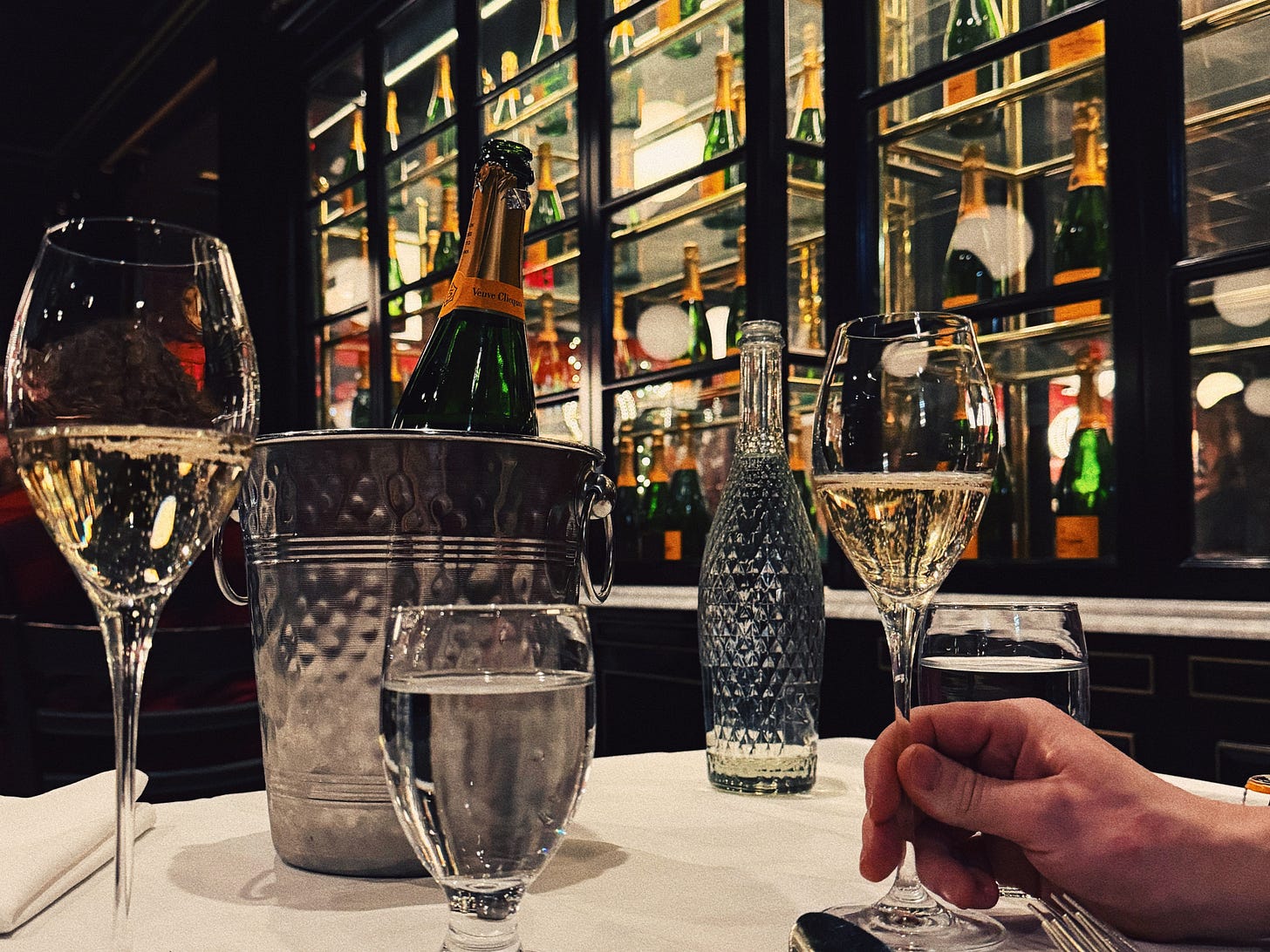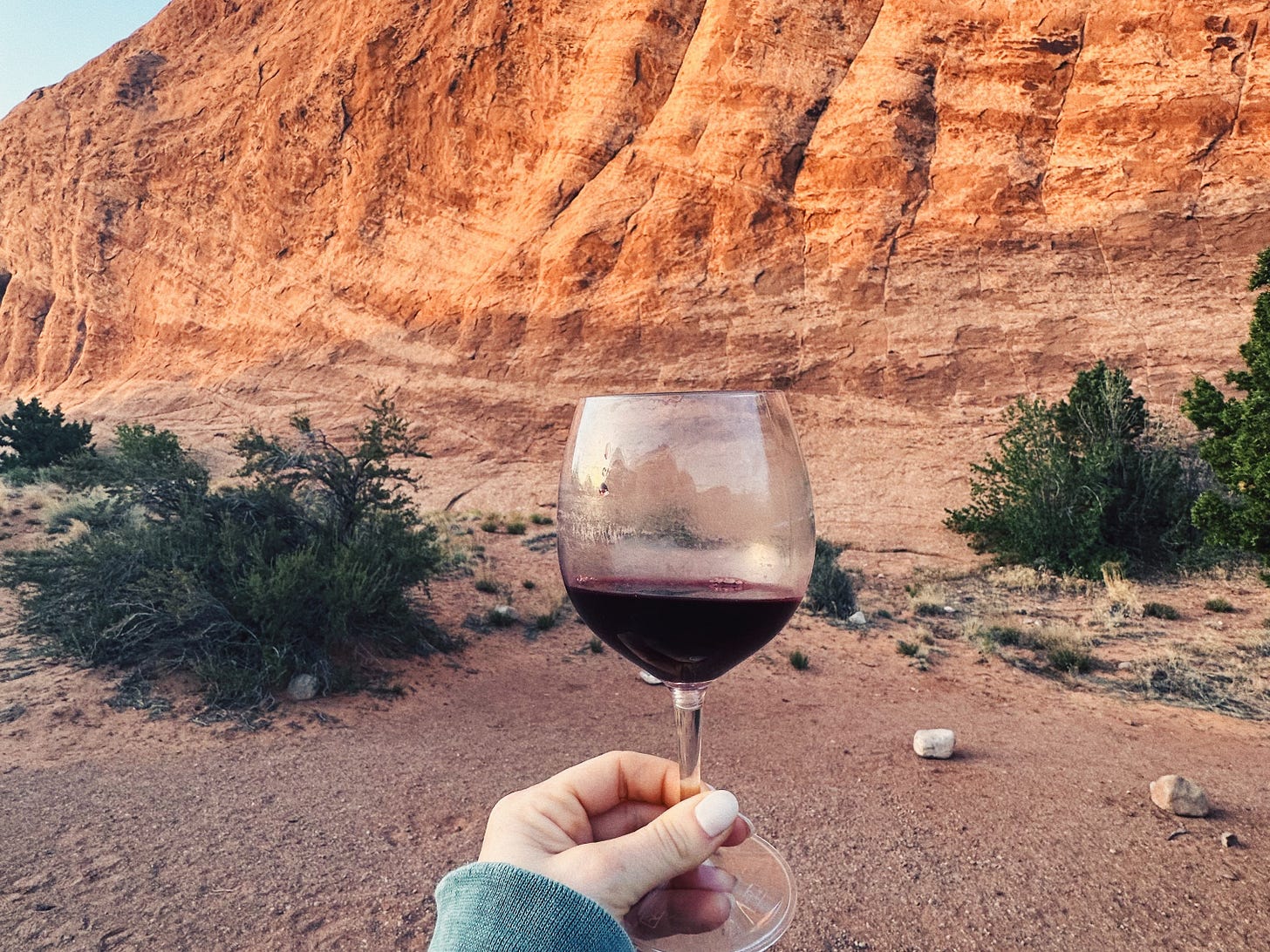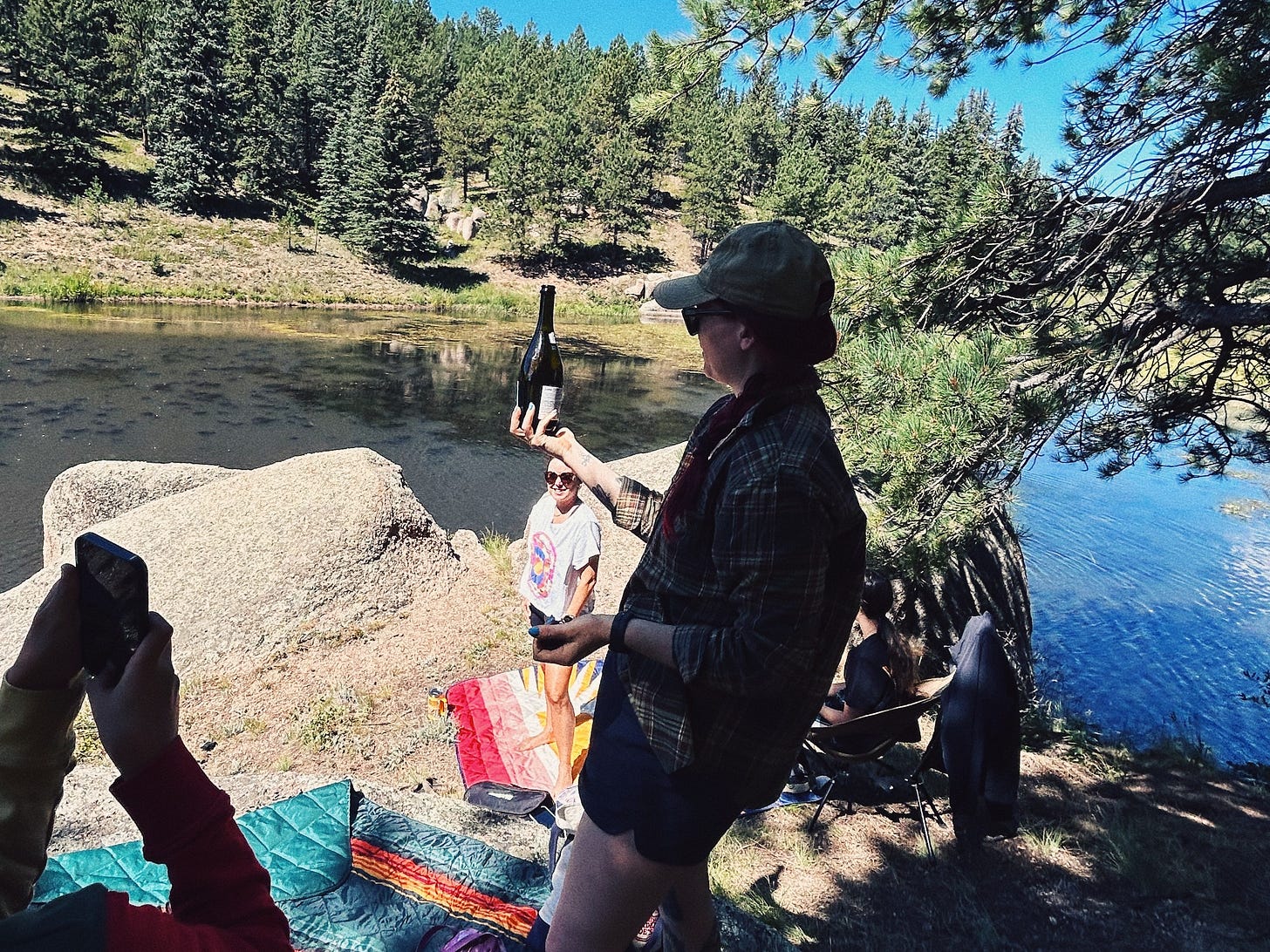Why I'm skipping dry January this year
a practice in finding the happy middle
Shade Cactus is a subscriber-supported newsletter of habitual travel adventures, poetry, and other lovely ways to appreciate the aesthetic. I appreciate you!
Sometimes, I wake up tired if I drank a couple of glasses of wine the night before and didn’t drink enough water. I’ve also thrown out my back from sitting on a couch for too long. (Mid-30s true story.) Does that mean I stop watching movies? No, I just get up and stretch once in a while.
Sober is a loaded term. It’s binary and definitive.
Either you’re sober, or you’re not. At least, that’s how it feels like I’m supposed to accept the term. And I just don’t anymore.
I’m not participating in dry January for the first time in several years. Since 2017, I’ve participated in the cultural experience of “dry January,” when participants abstain from alcohol throughout the month.
In previous years, I’ve felt I needed to “detox” or “take a break” after overindulging throughout the holidays. But I recognized this week as we slid into the new year that for the first time, I don’t feel the need to reorient myself to my health habits. I just live them.
To use Gretchen Rubin’s phrases, I am at my best when I am moderating instead of abstaining. I’m sober most of my life, day to day and week to week, but not all of it.
In recent weeks, I’ve noticed my Substack feed flooded with Notes about “gaining control of your relationship with alcohol” and even scathing articles written about wine writers, vilifying those who choose to drink and talk about it.
The nature of wine (like, it’s from nature)
In 2020, I earned my WSET (Wine & Spirit Education Trust) Levels 1 and 2 Certifications because I am a huge wine geek. (My Word of the Year, Earnest, comes into play here!) I’m not an expert, but I am an Enthusiast through and through. And this has little to do with the drinking of wine itself…
I love the history of wine. And its communal nature. My eyes light up while I listen to a winemaker discuss how that season’s weather affected the harvest, or how a winery has 10 generations of descendants who continue to take over the family business. I am in awe of talented, practiced people who blind-taste wine, calling the grape, region, and year.
Wine connects me to nature, the terrior, the sense of place.
With a blanket statement that all drinking, for everyone, is bad, all of the above is lost. It leaves no room for nuance. And in the nuance, of course, is that some people choose to abstain completely, for a myriad of reasons. And that’s valid, too.
, author of The Wine Bible and , shared in a recent article about the “Come Over October” campaign,“Let me say right off the top here that I believe that people should do whatever is right for their bodies. That’s a given.
But I am troubled by two issues in the way wine is now talked about and thought about.
First, I am disappointed that the narrative around wine has increasingly devolved to a discussion solely about alcohol. To me, wine is more than alcohol. Wine is woven into a rich tapestry with Nature, spirituality, art, cuisine, religion, and culture. And as we all know, if all you wanted was alcohol, there are cheaper and faster ways to get it than by having a glass of wine with dinner.
Second, and most important, I believe the positive story about wine is not being told. For 9,000 years, wine has been a communal beverage—a beverage that brings people together, creates new friendships, and deepens old ones. Why aren’t more people talking about that?
The story of wine’s cultural and social benefits is slipping away right before our eyes.”
MacNeil also shared that a commenter told her that she needed to reexamine her relationship with alcohol, which is an example of what
called, “the current neo-prohibitionist agenda.”This is textbook gaslighting. Not everyone who drinks has a drinking problem.
I’ve done my fair share of assessing how much or how often or what I’m consuming throughout the years. And that’s the point: only I can do that.
Finding the happy middle
This past year, I worked with a health/habits coach to create eating and movement habits to support my health. (This is a major reason why I didn’t feel the need to reorient my health habits this year!) I don’t often advertise this because of the “tyranny of self-love,” as
calls it, that tends to overshadow personal discernment when it comes to health and wellness goals and habits. Even the term “wellness” these days seems to be hated in a lot of circles.And I get it! The crippling power of capitalism is that it can take something well-meaning (like, simply, being well) and sell the wholesomeness right out of it. (Or take the example of the wine industry: the giant conglomerates add chemicals to their grapes, use shady marketing tactics, and get richer at the top. But this is not the whole story of wine and its small producers’ stories and histories — just as not all small businesses are contributing to capitalistic issues while providing for their livelihoods.)
Does that mean I stop moving my body or eating vegetables in the name of self-love? Because that doesn’t feel like love to me. Self-love feels like curating and living within my values. Having a coach to help me unlearn conditioned eating habits in order to align with my own values has been life-changing and energy-giving.
I have found a happy middle, as only I can do for myself.
And yet, when it comes to drinking, it tends to receive the opposite treatment of other “body positivity” perspectives. Why isn’t drinking viewed with the same sentiment as moderating? Even the term “overindulge” as I shared above, is celebrated in body positivity circles (no, you don’t have to do burpees to make up for eating cookies, of course!), but shamed in sober curious circles.
A good friend of mine owns a local brewery, and if everyone quit drinking, her business would go under. This is a small, local business that contributes to local charities and creates community in the taproom. It brings people together.
All of that would be lost if the loudest voices claiming any amount of alcohol is wrong, for everyone, won out.
Practicing personal discernment and following each of our own curiosity of what is supporting us is how we each find our happy middle. My middle won’t look like your middle. And isn’t that beautiful?
There is intention, authenticity, history, and community to be found in wine. In choice.
Cheers!
If you’re new here…
Hi! I’m Jordan, and Shade Cactus is where being a homebody and always planning your next travel adventure come to meet. It’s a travel blog / poetry newsletter / attempt to understand my inner world a bit better each day.
Subscribers can expect weekly-ish newsletters from me (and my forever undying gratitude!)










I love this Jordan. I feel similarly about the fear-mongering nature of the all-or-nothing thinking when it comes to alcohol. My partner is a fermentation scientist and a big part of traveling for us is visiting local wineries and breweries as a way of learning about the land, culture, and community in a place. I feel like an awareness of a personal balance is so important and you speak to this really beautifully. I wish we lived closer to drink a glass of wine and write poems together! 💕
Thanks for this post, Jordan. I'm totally with you. What is wrong with a beautiful glass of wine that completes a delicious home made meal? There's currently a lot of this all-or-nothing thinking going on, not only for wine drinking and I don't think that it's healthy. I'm all for the Happy Middle. I love this term. ♥️